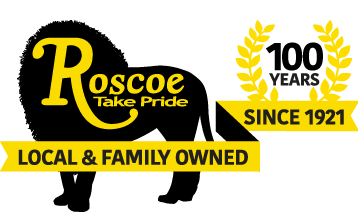When Roscoe President Jim Buik began his second two-year term as chairman of the industry association for the linen, uniform and facility services industry in 2018, he could not have imagined the challenges that lay ahead.
Buik’s longstanding advocacy of industry collaboration, modernization, strategic planning and transparency, however, proved well-suited to a term in which the coronavirus pandemic overtook the agenda and left no industry unscathed.
But while many businesses struggled just to minimize the damage, just getting through was never an option for an industry built on principles of hygiene and sanitization in the era of a runaway virus.
“I believe we’ve positioned the industry, not only to survive, but to emerge stronger than ever from this crisis.” – Roscoe President Jim Buik
As Buik writes in his farewell column for the TRSA magazine this month, “no one could have envisioned what we’ve been through in the past eight months.”
Overseeing the Response of an Essential Industry
Buik presided over a period of intensely effective industry collaboration that included virtual programs of education, networking and sharing of best practices. As an essential industry throughout the pandemic, the work of the industrial laundry and linen providers in helping other essential employees function safely and hygienically is hard to overstate.
Highlights of the pandemic-related industry initiatives launched throughout the year include nearly 50 webinars, regular member surveys and a host of online events and reporting to help ensure that the country’s uniform and linen providers stayed up-to-date throughout the ongoing crisis.
Buik’s term, which ends this month, is coming to a close just as the pandemic appears to be gaining in strength once again. But Buik believes that the industry has positioned itself to do more than weather the storm.
“I believe we’ve positioned the industry, not only to survive, but to emerge stronger than ever from this crisis,” he writes.
Supporting the Work of Essential Businesses
He cites examples of the Textile Rental Services Association response that include the ongoing mobilization of technology to get the word out and share best practices for managing the risks, as well as the advocacy efforts that led to the “essential industry” designation. That designation, early in the crisis, ensured that the industry could continue supplying uniforms and linens to other essential businesses that include hospitals, public utilities and other critical infrastructure.
Whatever the next phase brings, the industry, says Buik, is poised to meet it.
Contact us to learn more about our work uniform rental services

